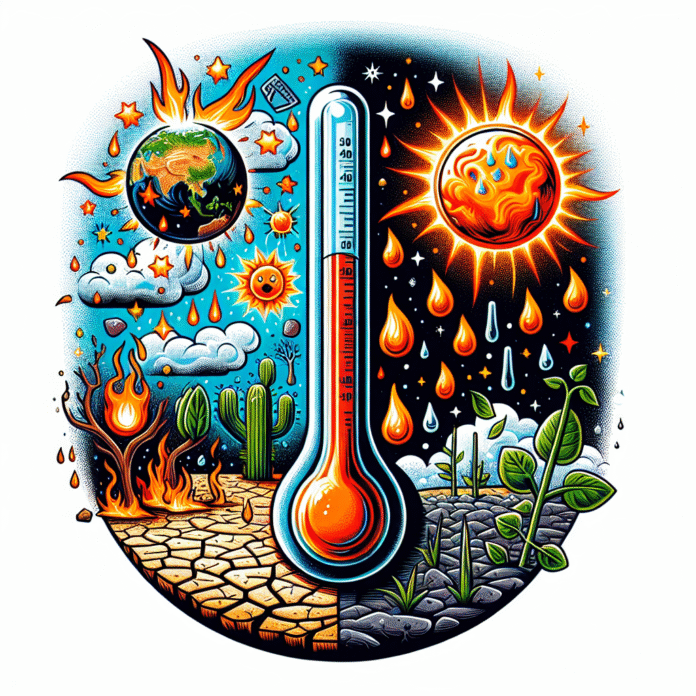Is This Heat Becoming the New Normal?
Sure! Below is a rewritten version of the article, incorporating additional relevant information, with appropriate HTML heading tags.
“`html
Too Hot to Handle: Is This Heat the New Normal?
As heatwaves become increasingly frequent and intense, many are left wondering if the soaring temperatures we are experiencing are a sign of a new normal. With climate change at the forefront of global discussions, scientists and meteorologists are examining the patterns and causes behind these extreme weather events.
The Rise in Global Temperatures
Recent studies have shown that global temperatures have risen significantly over the past century, with the past few years breaking records for heat. According to the World Meteorological Organization (WMO), the last decade was the hottest on record, and 2023 is no exception. Extreme heat is not just a temporary phenomenon; it appears to be a lasting trend driven by human activities, particularly the burning of fossil fuels and deforestation.
Impact on Health and Environment
Prolonged exposure to high temperatures poses serious health risks, including heat exhaustion and heatstroke. Vulnerable populations, such as the elderly and those with pre-existing health conditions, are particularly at risk. Moreover, extreme heat can exacerbate air quality issues, leading to respiratory problems and other health complications.
The environment is also suffering under these extreme conditions. Increased temperatures lead to droughts, affecting water supply and agriculture. Crop yields are declining, which can lead to food shortages and increased prices. Additionally, ecosystems are being disrupted, with many species struggling to adapt to rapidly changing climates.
Climate Action and Adaptation Strategies
As scientists warn that these heatwaves may become more common, the need for climate action has never been more urgent. Governments and organizations worldwide are urged to implement strategies aimed at reducing greenhouse gas emissions. Transitioning to renewable energy sources, enhancing energy efficiency, and promoting sustainable practices are critical steps in combating climate change.
In parallel, communities must adapt to the heat. Urban planning can incorporate green spaces to counteract the urban heat island effect, while public health initiatives can educate citizens on coping strategies during heatwaves. Infrastructure improvements, such as better cooling systems and water management, are essential for resilience against future heat extremes.
Conclusion
The question remains: Is this heat the new normal? While the immediate answer may be yes, it is crucial to recognize that the severity and frequency of these heatwaves can be mitigated through concerted global efforts. By addressing the root causes of climate change and implementing effective adaptation strategies, we can work towards a sustainable future, one that minimizes the impacts of extreme weather on both people and the planet.
“`
Feel free to use or modify the content as needed!


